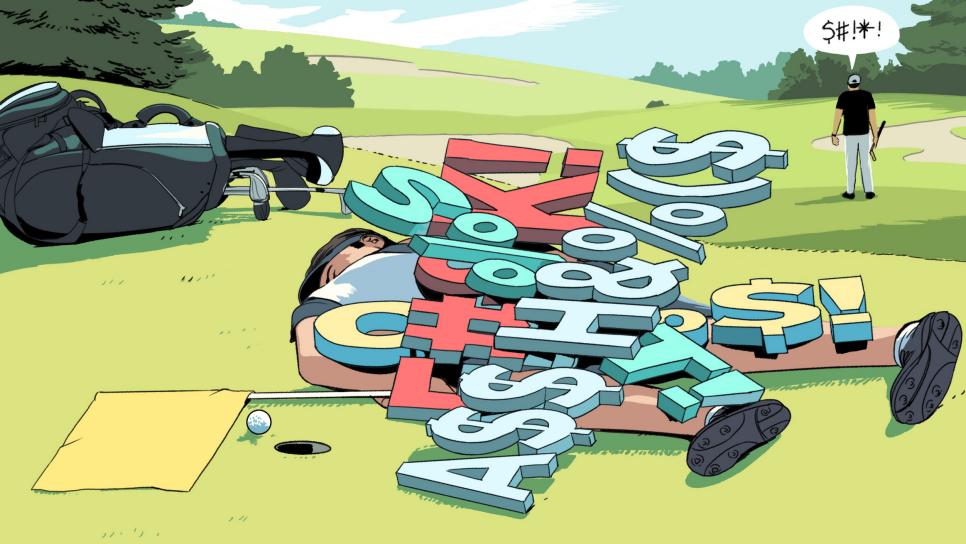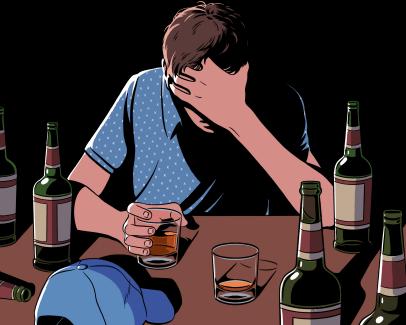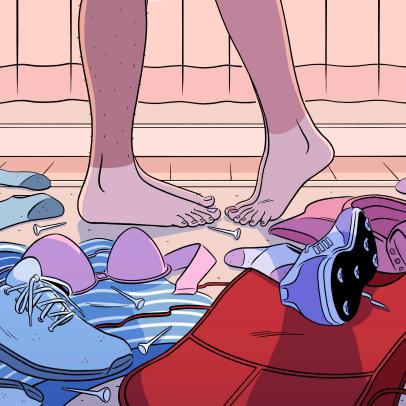Working in sports is different from most jobs, but it’s still a job. I’m sure some of you get chewed out by your bosses, but I doubt they talk to you the way some players talk to us. If you have played sports, you know heated exchanges among teammates and competitors are fairly common. I’m not condoning the language, but how many people really think twice about it?
That doesn’t make what gets said easier to hear.
Curse words, putdowns and questions that are not so much questions as they are criticisms come with the job. Golf is an emotional game, and the lines between great and good and between good and losing your card are so thin that every shot feels like it has greater meaning than it should. Living on that type of edge tends to expose nerves, and sometimes that turns into negative energy directed at us.
If something is our fault, we know it, and we’ll own it, but we can also get derided despite being right. Five years ago, near the end of the West Coast Swing, my player and I were doing well, but it was getting late, and we needed another birdie to make a playoff. We had an approach that I said required a good 9-iron. He wanted a soft 8. He got the last call, and the shot was way off to the right. I got an earful from my player, not because either of us was necessarily wrong but because I brought in doubt to the shot. Yes, it’s his job to commit, but you can’t be 100 percent committed on the 280-something shots you take per tournament. Doubt is always there, and though I’ve done my job, I still take the brunt of my guy’s failure.
You would think that would make it more palatable. It doesn’t. No one likes to be treated that way, especially if it’s not justified. It’s not just the tone. Words really can hurt. One player who I like used to call me “dumbass” after every bad shot anytime we were in disagreement. He said it in jest but also as a way of deflection to preserve his self-confidence. If you keep hearing you’re a dumbass, you begin to think, Well, maybe I am a dumbass.
This might sound a little funny, but I ended up seeing a therapist to talk about how to come to terms with it and how to stop it. I worried about how to bring this up with my player because if he didn’t react well, word would get out. Then I would be seen as weak, and my reputation on tour would have been done. I never had to make that call; right around the time I started talking to the therapist, my player got hurt. I jumped on a new bag with a guy who is a bit boring but polite and have stayed there since.
There’s a reason the guys you see on TV every week aren’t the ones who are guilty of berating their loops. If a player is routinely going at a caddie—at least being caught on camera going at a caddie—the tour will take the player aside and say, “Hey, tone it down.” It’s not because the tour cares about us; it has an image to uphold, and a superstar chewing out his bagman after a bad shot doesn’t help the brand. For some of the habitual line-crossers, the networks know enough to cut away before showcasing anything too nasty. Let’s just say there’s a reason you never see the reaction from one under-30 superstar. The networks know if they stay on him for too long, there’s a F-bomb being shot at his loop.
Everyone knows this one player who is a notorious hothead. He’ll pop off on his caddie three to four times a round. That’s a hell of a lot. The thing is, this player gets annoyed at everything and everyone, including himself, when he’s playing, which makes it easier for his caddie to take. They have a great relationship, and after a win a few years back this player bought his caddie a car to say thanks. Looking like a jerk doesn’t mean you are a jerk, if you know what I mean.
Conversely, there is a guy who everyone considers a nice dude except for the caddies. He rides his caddie hard: Nothing is ever his fault, and when things are going bad, boy, is he in a bad mood. The worst is that he talks massive crap behind his caddie’s back. He criticizes the decisions, prep and strategy after the fact, but then goes a level deeper, ripping his caddie’s appearance, behavior, even his drawl. The last part is especially offensive; yeah, his caddie talks a little slow, but when the player does his impression, he makes his caddie sound like a stereotypical hillbilly. It comes off mean-spirited, done only to put his caddie down for a cheap laugh.
Why does the caddie stay? There’s a lot of money to be made out here working in the game, and for most of us, caddieing professionally is something we love.
I was lucky because I had insight from my dad. He wasn’t a pro caddie; he worked at a bunch of clubs growing up, even as a side gig when he got married to help support the family. When I started caddieing, he instilled this lesson in me early: Take it or take off. That’s always in the back of my head because if I don’t want to do this anymore, I know there are hundreds that would jump at the chance to take my place.
To be completely fair, we’re not choir boys, either. We vent about our players to our fellow caddies. The next time you watch a tour event in person, if you see a caddie laughing with a radio or TV on-course reporter, we likely took a friendly dig at our player’s expense. Hey, we have to cope somehow. —With Joel Beall





